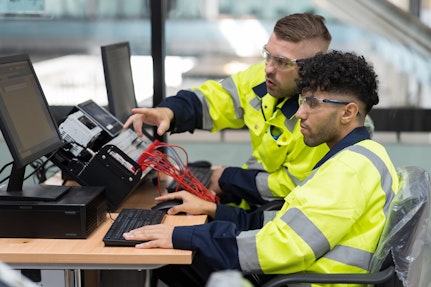Becoming a Living Wage Place
A place based approach to expanding the living wage

Tackling low pay is an important lever for reducing inequalities and building fairer, more inclusive economies, especially as we face a cost-of-living crisis.
Over the past 20 years, the Living Wage movement has put £1.6bn back into the pockets of low paid workers, lifted nearly 300,000 worker onto the Real Living Wage, and accredited almost 10,000 Living Wage Employers. But there is more to do to address the major challenges of work poverty, wage stagnation and income inequality.
The Living Wage Foundation, Bristol City Council and Greater Manchester Combined Authority joined us to talk about how they’re making the Real Living Wage a Reality.
Living Wage Places
Living Wage Places harnesses the power of place to help extend the Real Living Wage to more workers and lift them out of low pay. The scheme gives localities an opportunity to come together and build a coalition of local organisations to drive uptake of the living wage in their areas. Bristol City and Greater Manchester are among ten recognised Living Wage Places in the UK.
There are 16 local action groups of Living Wage employers from business, public sector and civil society across the UK. Action groups build collective energy to tackle in-work poverty, create local plans tailored towards the lowest paid in each place, and ensure all anchor organisations are Living Wage accredited. The scheme has seen 20,000 pay rises since 2019 across six recognised Living Wage Places.
Becoming a Living Wage Place
There are three steps to becoming a recognised Living Wage Place:
- Create an action group of Living Wage accredited employers. At a minimum, an action group should include: the relevant local authority, one other large ‘anchor’ institution, a major private sector employer, a third sector champion, a small or medium sized enterprise (SME), an employers’ network or union, and a civil society representative.
- Research the local low pay landscape. Tailoring an action plan to a specific locality means reviewing which sectors have a concentration of low paid roles; these generally include retail, social care, hospitality, manufacturing, and distribution. This also involves looking at where the pockets of in work poverty are and considering which demographics and communities are most affected by low pay in a locality. The Living Wage Foundation can offer statistics on how many employees are already paid the Real Living Wage by looking at which business and organisations are already accredited within that place.
- Develop an ambitious Living Wage Action Plan over three years. This action plan includes targets to increase number of Living Wage employers, workers and number of worked to be uplifted in addition to actions that engage local anchors, big business, SMEs, low pay sectors, communications plan.
Reflections from Bristol and Greater Manchester
- Adopt an approach which accounts for the assets and challenges that are unique to your place. Bristol and Greater Manchester embedded action around the Real Living Wage into existing local delivery frameworks – the Bristol One City Approach and Greater Manchester Good Employment Charter.
- Lead by example. Bristol City Council became Living Wage Accredited in 2018, which was crucial for gaining legitimacy to promote the message to other employers and build the momentum to becoming a recognised Living Wage Place in 2019. The living wage is included as a goal in the city’s collective One City Plan, with this collectively agreed framework helping to generate momentum for the campaign across the city.
- Use existing collaborative processes. The shared procurement service for Rochdale, Stockport, Tameside and Trafford (STAR procurement) was useful for developing a joint approach across four public bodies in the Greater Manchester region.
Bristol City Council and Greater Manchester Combined Authority are two of 14 members of the Inclusive Growth Network.
Resource Hub
Browse our resource library to find what inclusive growth looks like in practice and how it is benefitting people and places across the UK










